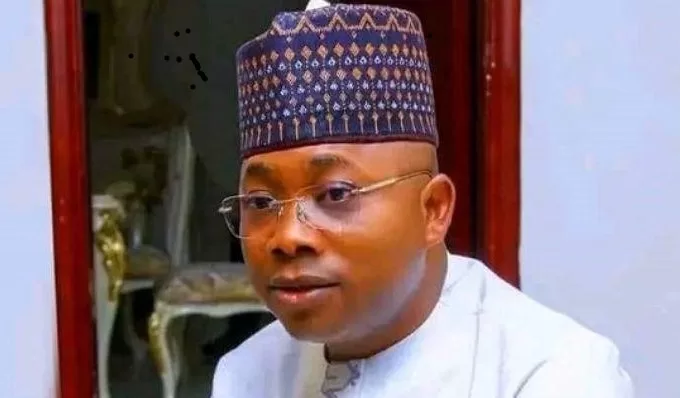Ododo, APC to begin defense
Usman Ododo, the governor of Kogi State, and the All Progressives Congress, his party, will begin their defense at the state’s governorship election tribunal in Abuja on April 15.
The announcement of Ododo as the poll’s winner is being contested by the Social Democratic Party and Muritala Ajaka, their candidate for governor on November 11, 2023.
With 446,237 votes, Ododo defeated Ajaka, his closest opponent, who received 259,052 votes. Dino Melaye, a candidate for the Peoples Democratic Party, came in third place with 46,362 votes.
The SDP and Ajaka concluded their argument on Friday, and the three-member panel, presided over by Justice Ado Birnin-Kudu, set the date.
Initially, the petitioners had said Only 25 of the 400 witnesses they had were called.
The petition named the APC, Ododo, and Independent National Electoral Commission as the first, second, and third respondents, in that order.
On Friday, when the case was called, Jibrin Okutepa (SAN) attempted to summon Edidiong Udoh, a digital forensic expert witness, as the main witness. However, Kanu Agabi (SAN), the counsel for INEC, Alex Iziyon (SAN), and Emmanuel Ukala (SAN), the attorney for Ododo, all objected.
They claimed that the witness’s identity was omitted from the petitioners’ proof of evidence and that the sworn witness statement was not frontloaded with the petition.
Additionally, they said that the reports of the analysis were delivered to them by the petitioners’ attorney twenty minutes before to the start of the proceedings.
However, Okutepa emphasized that the forensic expert’s declaration was front-loaded and that it was included as item 10 on page 56 of the petition.
He did acknowledge, nevertheless, that the respondents had received the report just minutes prior to the hearings.
Thus, the attorney implored the tribunal to grant him permission to provide Udoh as evidence and to adjourn the case for half an hour so that the respondents may review the report.
Udoh requested permission from the tribunal to change Paragraph 7, Line 3 of his sworn statement, which he filed on January 12, 2024, prior to the tribunal accepting it.
“The specific phrases I used weren’t appropriate. There was some extremely dubious software, I commented. I request that it be changed He prayed to “‘there was no suspicious software used.'”
Iziyon, Ukala, and Agabi, however, disapproved of Udoh’s oral application.
Agabi stated, “There is no kind of amendment that cannot be permissible if this kind of amendment is permissible.”
The responders were advised by the judge to save their concerns until their last written statements.
Udoh claimed to have 12 certifications to back up his credentials when testifying.
The attorneys for the respondents protested when Okutepa attempted to submit the witness certificates as exhibits.
They questioned why the attorney only wanted to provide photocopies of the certifications rather than the actual paperwork to bolster the claims.
In response, the witness said he didn’t bring the original certificates.
“The originals were inadvertently left in my Port Elizabeth office. Harcourt, but they’re mine,” Udoh remarked.
The petitioners’ attorney argued that the certificates might be included since they were personal documents, even if the panel rejected the reproductions.
Judge Birnin-Kudu acknowledged receipt of the materials and asked the respondents’ attorneys to hold off on raising objections until the last speech.
When asked if he was the sole expert who worked on the report during the cross-examination, the witness responded that eight other experts collaborated with him on it.
It was brought to his notice that he was not signing the names of the experts in the report, nor were their signatures included.
Udoh retorted that since he was the team leader, his name and signature were on the report. head.
“Eight of us conducted the analysis,” Udoh stated. Our qualifications as digital forensic specialists are the same.
As the team leader, I signed the report. Since I was in charge of the team, I did not include their name.
Inquiries about the witness’s knowledge of the contents and significance of the BVAS Machine were also made.
According to him, they were meant to include data on registered voters, accredited voters, and any other relevant information.
When the respondent’s attorney asked if Form EC8A was included in this material, he replied that it might be.
Next, the attorney for the respondents questioned whether Form EC8A was present in each and every BVAS Machine snapshot that was included in his report.
According to Udoh, only registered voters could access the photos.Form EC8A is one of the forms that should be included in BVAS according to the INEC guidelines.
He responded “no” when asked if he looked at the ballots and if his conclusions were included in his report.
He did, however, affirm that he received the voters registration from INEC, though he was unable to recall the number.



